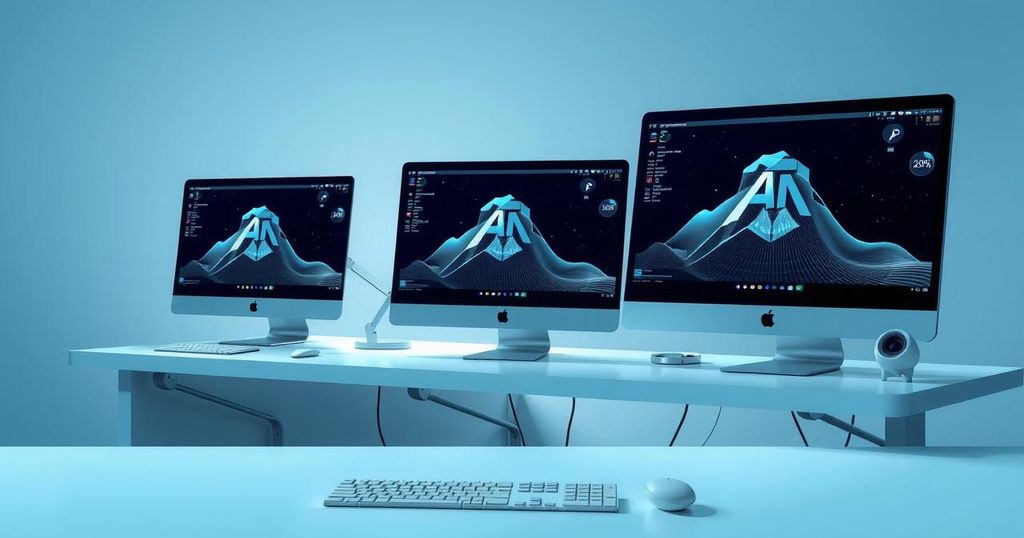AI
AMAZON, AMODEI, ARTIFICIAL INTELLIGENCE, CALIF, CALIFORNIA, CNN, CUBA, DARIO AMODEI, DATA CENTERS, FAREED ZAKARIA, HUANG, INNOVATION, INTELLECTUAL PROPERTY, JENSEN HUANG, MARKET CAPITALIZATION, MICROSOFT, NORTH AMERICA, NVIDIA, SANTA CLARA, SILICON VALLEY, UNITED STATES, VENTURE CAPITAL
Rajesh Choudhury
0 Comments
Nvidia CEO Warns AI Could Lead to Job Losses Without Innovation
- Nvidia’s CEO warns about potential job loss due to AI.
- AI innovations could boost productivity if combined with new ideas.
- 41% of CEOs expect AI to shrink workforce sizes by 2025.
- Some jobs will be lost, but new roles may emerge with AI.
- Huang believes innovation is key to future employment opportunities.
AI’s Effect on Employment: A Double-Edged Sword
Benefits and Risks of Artificial Intelligence Loom Large in Workforce Landscape. Nvidia CEO Jensen Huang made waves when he discussed the potential consequences of artificial intelligence (AI) on employment during an interview with CNN. He voiced a stark warning that while AI could boost workplace productivity significantly, it also has the potential to cause job losses—especially if industries fail to innovate and generate new ideas. This echoes sentiments shared by tech leader Dario Amodei from Anthropic, who predicted that AI may disrupt job markets dramatically, potentially spiking unemployment rates to as high as 20% within the next five years.
Innovation Vital for Mitigating Job Loss Risks
Huang expressed confidence that innovation can mitigate the adverse effects of AI on jobs. “If the world runs out of ideas,” he warned, “productivity gains can translate to job loss.” The implications of AI are not merely theoretical; CEO surveys indicate a bleak outlook, with about 41% anticipating a reduction in workforce sizes as automation takes hold over the next five years. Still, Huang remained optimistic, suggesting that as long as companies keep generating innovative ideas, there’s hope for productivity growth without job loss. He emphasized the critical question of whether society can continue to innovate, which can shape future employment opportunities as industries adapt.
Nvidia’s Role in Shaping AI and Future Jobs
As a company at the forefront of AI technology, Nvidia’s investments have not gone unnoticed, particularly in sectors that rely on robust data center capabilities like those of Microsoft and Amazon. Huang noted that the plan is to ensure that technology actually uplifts society by creating new jobs even as some are lost. He also acknowledged that the implementation of AI will undoubtedly alter traditional job roles; many large companies have confirmed plans to automate various tasks, like paying suppliers or handling invoices. Despite these changes, Huang pointed out that his responsibilities as CEO have also evolved, showing that this transformation is both complex and inevitable.
In summary, the conversation around AI and job markets is intensifying, with Nvidia’s CEO Jensen Huang warning against a lack of innovation leading to job losses. He remains hopeful that ongoing creativity can accompany productivity boosts, thus helping to create new opportunities as some jobs become automated. However, as AI continues to evolve and disrupt traditional roles, finding a balance between tech advancement and employment remains a significant challenge that leaders need to navigate carefully.




Post Comment